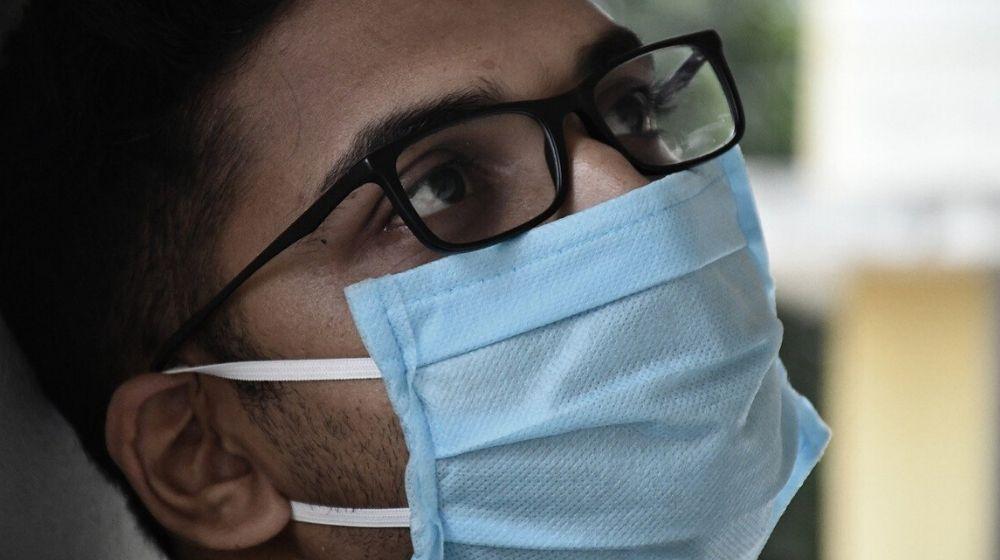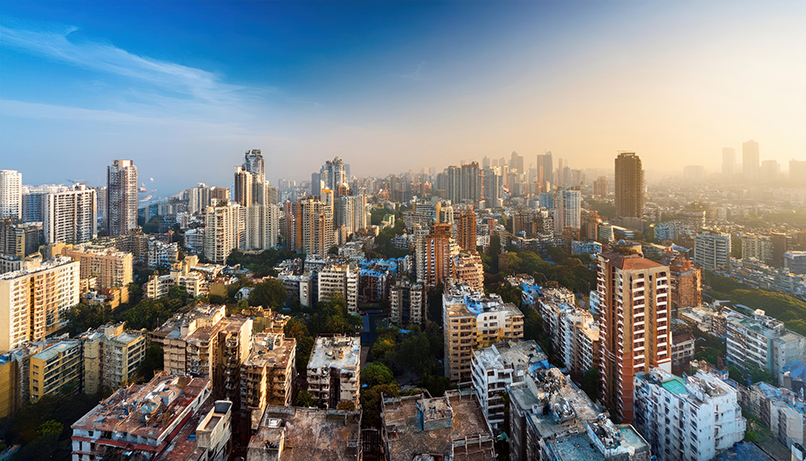India, the country of 130 crore people, is still largely in lockdown till 17th May in hopes of saving millions of lives from coronavirus (COVID-19). Most businesses and organizations in Red zones are shut, but essential public services like pharmacy, grocery, hospitals and police are still open. Standalone neighborhood shops are open as well, as are a limited number of services in green and orange zones. For these organizations, workplace safety must be the priority and the responsibility of employers to keep everyone safe.
Salute to those people who are working for the nation during this critical time!
COVID-19 virus spreads from one (infected) person to another (non-infected person). The virus enters a person through the nose, mouth or eyes. Anything that comes in contact with an infected person can spread the COVID-19 virus to others.
For example, when an infected person coughs, they release the infected fluid droplets. Most of these droplets fall on the nearby things. And if a healthy person touches those things and then touches his eyes or nose, he could be infected by COVID-19.
That’s why experts are recommending social distancing to keep us away from each other by a minimum of 2 meters to stop the spread of COVID-19.
But for working organizations, social distancing is not enough. They need to take more precautions to get the workplace ready for COVID-19. Keep reading for important tips.
Related: A practical guide for small business during the global crisis
Simple ways to prevent the COVID-19 spread at work
These are the basic workplace health and safety instructions that all open businesses must start implementing now. Use them to keep your employees, contractors and customers from being infected by the virus.
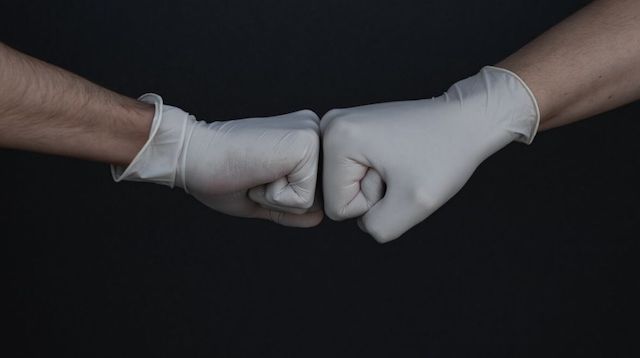
- Make your workplace clean and hygienic. You need to clean everything, from objects to surfaces, that your customers and employees are touching many times in a day with sanitizers.
- Encourage your staff and customers to wash their hands regularly, especially before eating and touching their eyes, nose or mouth.
You must ensure that workers have access to places where they can wash their hands with soap and water. Urge them to wash properly until one minute, as this helps prevent the spread. - At your workplace, ensure that face masks, gloves and tissue-papers are available and that workers are using them. Provide closed bins to hygienically dispose of them.
- If a worker has even minor symptoms like low-grade fever or mild cough, they need to stay at home. Don’t force anyone to be present at the office. It could be harmful to that person and also for you and other employees.
- Display workplace safety posters (download them here) and brief workers about the safety precautions you expect them to follow.
Above all, get immediate help from your doctor if someone looks sick at your workplace. Don’t touch his things before sanitizing them.
Tips for meetings and events
An infected person at an in-person meeting can unwittingly spread the virus to other members of the staff. So before holding a meeting or event:
- Only do in-person meetings and events if they can’t be avoided. If you can replace it with an online video conference, do so.
- Only invite or allow the people who absolutely must attend the meeting or event.
- Advise attendees in advance not to come if they are sick or not feeling well.
- Plan everything in advance in case someone displays COVID-19 symptoms during the meeting/event.
- Reserve a separate room to isolate anyone who is not feeling well. Be prepared to get the help of local public health authorities.
- Decide what to do if someone tests positive during or just after the meeting.
It is very important that you keep a record of every member who attends the event like participants, organizers, caterers, and visitors. Collect their details like name, phone, email and address where they are living. Make sure they all agree that the information can be shared with police or health authorities if required. If someone does not agree to this, don’t allow him to attend the event.
During the meeting or event

Before anyone arrives, ensure the availability of masks, tissue papers, sanitizers and closed disposal bins. If holding the meeting in person:
- Encourage social distancing, keeping a space of two meters between people.
- Urge everyone to follow the basic tips (listed above) like saying hello without touching, using face masks and washing hands before touching their faces or eating.
- Open doors and windows to ensure the proper ventilation of the venue.
If someone feels unwell, then follow your prepared plan and request help from the local public authorities if needed.
After the meeting or event
Because an infected person can be without symptoms for up to two weeks, there’s more to be done after the meeting/event:
- Keep the collected details of all members and participants for at least one month. This will be helpful for health authorities to trace people if any participant tests COVID-19 positive.
- If someone was isolated as a COVID-19 suspect during the meeting, the organizer must advise all participants to isolate and monitor themselves for two weeks (14 days). Suggest they check their temperature two times a day.
- If they develop even a low-grade-fever or mild cough, they must isolate themselves and avoid close contact (less than 2 meters) with everyone, including their family members. Tell them to contact a doctor or local health authority.
While it takes effort, carefully following these rules will help keep your meeting or event from spreading COVID-19.
Related: Electronic payment systems— a boon for your business in COVID-19 era
Tips for traveling
When travel is necessary, follow these guidelines:
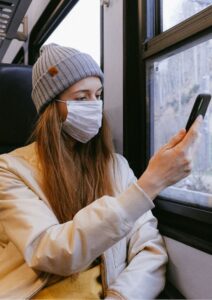 First of all, ensure that you have the latest information and data reports about the areas most infected by COVID-19. You can find it all here and keep an eye on the latest news. Based on this, decide if the benefits of travel outweigh the risks.
First of all, ensure that you have the latest information and data reports about the areas most infected by COVID-19. You can find it all here and keep an eye on the latest news. Based on this, decide if the benefits of travel outweigh the risks.- Don’t allow older workers or those with serious medical conditions like diabetes or lung or heart disease to travel. COVID-19 is more dangerous for these people.
- Ensure that people traveling to infected areas are briefed by a healthcare professional.
- Provide face masks, gloves and sanitizer bottles to everyone who is going to travel.
You might want to keep these guidelines handy, as they may be necessary after the lockdown has been lifted.
While traveling
Encourage travelers to use face masks, practice social distancing and wash their hands regularly.
Make sure they know who to contact and what to do if they feel ill while traveling.
Ensure that they follow the local authorities’ instructions where they are. Don’t send a worker somewhere if the local authorities don’t want you to.
After return from travel
After returning, those who have travelled must isolate and monitor themselves for the next 14 days, checking their temperature twice a day. Keep a distance of 2 meters from everyone, even family members.
In case they have minor symptoms like low-grade fever or mild cough, urge them to contact a doctor or local health authority and tell them about their travel and symptoms.
Getting your workplace ready for exposure
Finally, it is wise to have a plan in case someone becomes infected by COVID-19 at your workplace. Decide where that person could be isolated and limit the people who can contact that sick person.
In addition, you might want to:
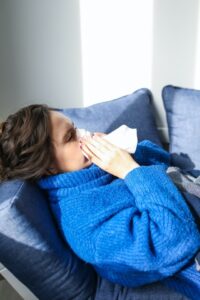 Identify those who may be at risk. This could be someone who recently traveled to a virus-infected area, in which case you should urge them to self-isolate for 14 days. Keep those who have conditions that can put them at serious risk (advanced age, diabetes, heart/lung disease, etc) far from anyone who might be infected.
Identify those who may be at risk. This could be someone who recently traveled to a virus-infected area, in which case you should urge them to self-isolate for 14 days. Keep those who have conditions that can put them at serious risk (advanced age, diabetes, heart/lung disease, etc) far from anyone who might be infected.- Advise workers to avoid visiting public places and using public transport. It could spread the virus.
- If possible, allow your people to work from home. It will help you run your business and keep employees safe.
Don’t be afraid to ask local health authorities for help and advice.
Workplace safety is your responsibility
Follow these workplace safety tips to control the spread of COVID-19 in your workplace, take precautions during meetings and while traveling. Use face masks, wash your hands regularly and maintain social distancing with each other.
Prioritize workplace health and safety because lives are far more important than any business concerns. Offer help and support wherever you can. This is the best time to give your contribution to save lives in India and around the world.
